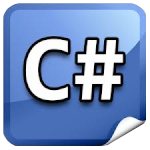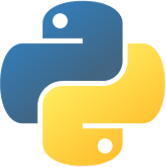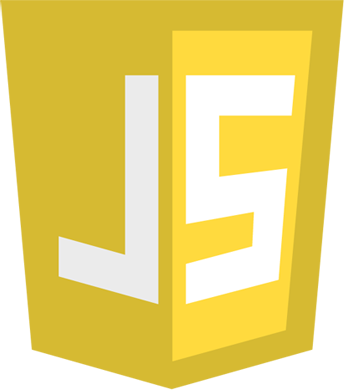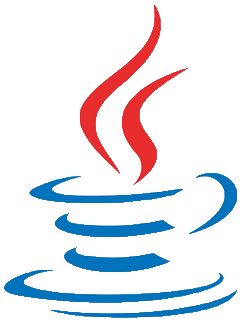Making an outbound call
Learn how you initiate a phone call. With this example you will send an HTTP
Request to the installed API Extension for starting a Call, and the API will read a text for the Caller.
Please write the following code into the right file at your web server:
Using this example you will be able to send a request to Ozeki Phone System XE through OPS SDK for making and managing an outgoing call. First of all, please login and connect to the API Extension. After that, use the CreateCall method, subscribe the necessary events and start your call.
Next: Log calls
[HttpPost]
public void MakeCall(string dialed, string apiExtension,
string callerId, string callerDisplayName, string url, string errorUrl)
{
var serverUri = "http://ozekixepbx.ip:7780/";
var queryString =
"?Command=Call" +
"&Dialed=" + dialed +
"&ApiExtension=" + apiExtension +
"&CallerId=" + callerId +
"&CallerDisplayName=" + callerDisplayName +
"&Url=" + url +
"&ErrorUrl=" + errorUrl;
byte[] data = new ASCIIEncoding().GetBytes(queryString);
// Prepare web request...
var request = (HttpWebRequest)WebRequest.Create(serverUri);
request.Method = "POST";
request.ContentType = "application/x-www-form-urlencoded";
request.ContentLength = data.Length;
Stream newStream = request.GetRequestStream();
// Send the data.
newStream.Write(data, 0, data.Length);
newStream.Close();
}
class MakeCallController < ApplicationController
require 'net/http'
protect_from_forgery except: :index
# In routes.rb you need to set the following routing rule
# get '/make_call' => 'make_call#index'
def index
ops_ip_address_with_port = "ozekixepbx.ip:7780"
api_extension = "9999"
dialed = "2000"
caller_id = "1000"
caller_display_name = "Tibi"
url = "http://yoursite.com:3000/handle_call_response"
error_url = "http://yoursite.com:3000/handle_call_error"
query = "http://#{ops_ip_address_with_port}/?Command=Call&Dialed=#{dialed}&
ApiExtension=#{api_extension}&CallerId=#{caller_id}
&CallerDisplayName=#{URI::encode(caller_display_name)}
&Url=#{URI::encode(url)}&ErrorUrl=#{URI::encode(error_url)}"
uri = URI query
response = Net::HTTP.get uri
render :text => '<b>Response: </b>' + response
end
end
<?php
$url = "http://yoursite.com/HandleCallResponse.php";
$errorUrl = "http://yoursite.com/HandleCallError.php";
$server = "http://ozekixepbx.ip:7780";
$commandParams['Command'] = "Call";
$commandParams['Dialed'] = "883";
$commandParams['ApiExtension'] = "9000";
$commandParams['CallerId'] = "777";
$commandParams['CallerDisplayName'] = "Joe";
$commandParams['Url'] = $url;
$commandParams['ErrorUrl'] = $errorUrl;
$command = http_build_query($commandParams);
$params = array('http' => array('method' => "POST",
'content' => $command));
$context = stream_context_create($params);
$fp = @fopen($server, 'r', false, $context);
echo "Response: ";
$response = @stream_get_contents($fp);
echo $response;
?>
import urllib
import urllib.request
import urllib.response
import datetime
from cgi import escape
def application(environ, start_response):
result = ""
if(environ["PATH_INFO"] == ''):
result = createCall()
elif(environ["PATH_INFO"] == '/HandleCallResponse'):
result = getOzmlResponse(environ)
elif(environ["PATH_INFO"] == '/HandleCallError'):
result = callErrorOccured(environ)
response_headers = [('Content-type', 'text/plain'), ('Content-Length', str(len(result)))]
start_response('200 OK', response_headers)
return [result]
def createCall():
dict = {}
dict["Dialed"] = "1001"
dict["CallerId"] = "1201"
dict["CallerDisplayName"] = "Mr. Test"
dict["ApiExtension"] = "9000"
dict["Url"] = "http://yoursite.com/HandleCallResponse"
dict["ErrorUrl"] = "http://yoursite.com/HandleCallError"
opsLocation = "ozekixepbx.ip"
opsPort = 7780
result = ""
requestUrl = "http://{}:{}/?Command=Call&{}".format(opsLocation, opsPort, urllib.parse.urlencode(dict))
result += requestUrl
request = urllib.request.Request(requestUrl)
response = urllib.request.urlopen(request)
if(response.status != 200):
result += "\r\nThe HTTP Status received indicates errors: {}".format(response.status)
return result
result += "\r\nCall successfully created."
return result
using System;
using OPSSDK;
using OPSSDKCommon.Model.Call;
using Ozeki.Media.MediaHandlers;
namespace OPS_QuickStartExample_CSharp
{
class Program
{
static void Main(string[] args)
{
var client = new OpsClient();
client.ErrorOccurred += (sender, info) =>
Console.WriteLine(info.Message);
if (!client.Login("ozekixepbx.ip", "admin", "12345"))
return;
var apiExtension = client.GetAPIExtension("9000");
var call = apiExtension.CreateCall("1001");
var tts = new TextToSpeech();
tts.Stopped += (s, a) => call.HangUp();
call.ConnectAudioSender(tts);
call.CallErrorOccurred += (sender, e) => Console.WriteLine(e.Item);
call.CallStateChanged += (sender, e) =>
{
if (e.Item == CallState.Answered)
tts.AddAndStartText("Hello, this is a test call");
else if (e.Item.IsCallEnded())
tts.Dispose();
};
call.Start();
Console.ReadLine();
}
}
}
Imports OPSSDK
Imports Ozeki.Media.MediaHandlers
Imports OPSSDKCommon.Model.Call
Module Module1
Public Sub Main(args As String())
Dim client = New OpsClient()
AddHandler client.ErrorOccurred, Sub(sender, info)
Console.WriteLine(info.Message)
End Sub
If Not client.Login("ozekixepbx.ip", "admin", "12345") Then
Return
End If
Dim apiExtension = client.GetAPIExtension("9000")
Dim [call] = apiExtension.CreateCall("1001")
Dim tts = New TextToSpeech()
AddHandler tts.Stopped, Sub(s, ev)
[call].HangUp()
End Sub
[call].ConnectAudioSender(tts)
AddHandler [call].CallErrorOccurred, Sub(sender, e)
Console.WriteLine(e.Item)
End Sub
AddHandler [call].CallStateChanged,
Sub(sender, e)
If e.Item = CallState.Answered Then
tts.AddAndStartText("Hello, this is a test call")
ElseIf e.Item.IsCallEnded() Then
tts.Dispose()
End If
End Sub
[call].Start()
Console.ReadLine()
End Sub
End Module
#!c:/Perl64/bin/perl.exe
print "Content-Type: text/plain\n\n";
#You have to add the directory route of perl.exe, and print the content type
$address = "ozekixepbx.ip:7780"; #ip address of PBX, and the port of HttpAPI (default: 7780)
$dialedNumber = "1001";
$apiExtensionId = "9000";
$callerId = "777";
$callerDisplayName = "Joe";
$url = "http://yoursite.com/HandleCallResponse.pl";
$errorUrl = "http://yoursite.com/HandleCallError.pl";
use LWP::UserAgent;
$ua = LWP::UserAgent->new;
# Create and Send request
$req = HTTP::Request->new(GET => "http://$address/?Command=Call&Dialed=
$dialedNumber&ApiExtension=$apiExtensionId&CallerId=$callerId&CallerDisplayName=
$callerDisplayName&Url=$url&ErrorUrl=$errorUrl");
$res = $ua->request($req);
# Check the result of the request sending
if ($res->is_success) { print "\n". $res->decoded_content . "\n" }
else { print "\nError: " . $res->status_line . "\n" }
package pbxsampleapp;
import com.sun.net.httpserver.*;
import java.io.*;
import java.net.*;
import java.text.SimpleDateFormat;
import java.util.*;
public class MakingAnOutboundCall
{
public static void main(String[] args)
{
try
{
RunHttpServerforCallresult();
makeCall("5500", "5440", "http://yoursite.com/callresult?action=connected",
"http://yoursite.com/callresult?action=error");
}
catch (IOException ex){ System.out.println("Error" + ex.toString());}
}
private static void makeCall(String extension, String dialed, String url, String errorUrl) throws IOException
{
String queryParams =
"command=Call&ApiExtension=" + URLEncoder.encode(extension, "UTF-8")
+ "&Dialed=" + URLEncoder.encode(dialed, "UTF-8")
+ "&Url=" + URLEncoder.encode(url, "UTF-8")
+ "&ErrorUrl=" + URLEncoder.encode(errorUrl, "UTF-8");
URL requrl = new URL("http://ozekixepbx.ip:7780/?" + queryParams);
URLConnection conn = requrl.openConnection();
InputStream input = conn.getInputStream();
byte[] b = new byte[input.available()];
input.read(b);
System.out.println(new String(b));
}
private static void RunHttpServerforCallresult()
{
try
{
System.out.println("Starting http server for callresult...");
HttpServer server = HttpServer.create(new InetSocketAddress
(InetAddress.getByAddress(new byte[] { 0, 0, 0, 0 }), 12345), 0);
server.createContext("/callresult", new PbxSampleApp.PBXRequestHandler());
server.start();
System.out.println("http server running on " + server.getAddress().toString());
}
catch (IOException ex){ System.out.println("Error" + ex.toString());}
}
}
<!DOCTYPE html> <html> <head> </head> <body> <form action="http://ozekixepbx.ip:7780" method="POST"> <input type="hidden" name="Command" value="Call"> <input type="text" name="ApiExtension" value="9999"> <input type="text" name="Dialed" value="1001"> <input type="text" name="CallerId" value="123456789"> <input type="text" name="CallerDisplayName" value="Joe"> <input type="hidden" name="Url" value="http://yoursite.com/CallResponse.xml"> <input type="hidden" name="ErrorUrl" value="http://yoursite.com/CallError.php"> <input type="submit" value="Make Call"> </form> </body> </html>
Read information about the Request parameters at the following page. Please change the ozekixepbx.ip text to that ip address where the Ozeki Phone System is installed. On the yoursite.com the address should be that where the sample applications are running. The API will get the Request and execute the given OzML commands (that can be found at the Url parameter of the request). In this example, the OzML command looks like this:
[HttpPost]
public ActionResult HandleCallResponse(string notificationName,
string callLegID, string callee, string apiExtension)
{
return Content(
"<Response>" +
"<Speak>Hello, this is a test call on "
+ DateTime.Now.ToString("MMMM.dd", CultureInfo.InvariantCulture) + "</Speak>" +
"</Response>", "text/xml");
}
class HandleCallResponseController < ApplicationController
require 'date'
require 'time'
protect_from_forgery except: :index
# In routes.rb you need to set the following routing rule
# post '/handle_call_response' => 'handle_call_response#index'
# http://yoursite.com:3000/handle_call_response
def index
receive_time = Date::ABBR_MONTHNAMES[Date.today.month] + ' ' + Date.today.day.to_s
render :xml => '<?xml version="1.0" encoding="UTF-8"?>
<Response>
<Speakd>Hello, this is a test call on ' + receive_time + '</Speak>
</Response>'
end
end
<?php
$receiveTime = date("M.d");
print "<Response>";
print "<Speak>Hello, this is a test call on $receiveTime</Speak>";
print "</Response>";
?>
#!c:/Perl64/bin/perl.exe print "Content-Type: text/plain\n\n"; #You have to add the directory route of perl.exe, and print the content type my($day, $month)=(localtime)[3,4]; #Send response by print print '<?xml version="1.0" encoding="UTF-8"?> <Response> <Speak>Hello, this is a test call on '.$month.'.'.$day.'</Speak> </Response>'
def getOzmlResponse(environ):
today = datetime.datetime.now();
return """<?xml version="1.0" encoding="UTF-8"?>
<Response>
<Speak>Hello, this is a test call on {0}</Speak>
</Response>""".format(today.strftime('%B %d'))
static String HandleResponse(String query, Map<String, String> params)
{
if (query.contains("action=connected"))
return "<?xml version=\"1.0\"?>"
+ "<Response>"
+ "<Speak>Hello, this is a test call on "
+ new SimpleDateFormat("MM/dd/yyyy HH:mm:ss").format(new Date())
+ "!</Speak>"
+ "</Response>";
else if (query.contains("action=error"))
for (Map.Entry<String, String> entry : params.entrySet())
{
String string = entry.getKey();
String string1 = entry.getValue();
System.out.println(String.format("%s %S", string, string1));
}
return "";
}
static class PBXRequestHandler implements HttpHandler
{
@Override
public void handle(HttpExchange httpExchange) throws IOException
{
InputStream inputStream = httpExchange.getRequestBody();
byte[] body = new byte[inputStream.available()];
inputStream.read(body);
String response = "";
String query = httpExchange.getRequestURI().getQuery().toLowerCase();
if (query.contains("action=connected") || query.contains("action=error"))
response = HandleResponse(query ,parseBody(body));
if (response.length()==0 )
httpExchange.getResponseHeaders().add("Content-type", "text/html");
else
httpExchange.getResponseHeaders().add("Content-type", "text/xml");
httpExchange.sendResponseHeaders(200, response.length());
OutputStream os = httpExchange.getResponseBody();
os.write(response.getBytes());
os.close();
}
private Map<String, String> parseBody(byte[] params) throws UnsupportedEncodingException
{
Map<String, String> query_pairs = new LinkedHashMap<String, String>();
String[] pairs = URLDecoder.decode(new String(params), "UTF-8").split("&");
String paramname;
String value;
for (String pair : pairs)
{
int idx = pair.indexOf("=");
paramname = pair.substring(0, idx);
value = pair.substring(idx + 1);
query_pairs.put(paramname, value);
System.out.println(String.format("%s: %s", paramname, value));
}
return query_pairs;
}
}
<Response> <Speak>This is a test call</Speak> </Response>
The API Extension just say “Hello, this is a test call” sentence to the Caller, and hang up the line. If any errors occur during the call then the ErrorUrl will be requested. For example you can write a simple application on that URL, what will log the errors.
IN MORE DETAILSGet the OPSSDK.dll
First you need to add the OPSSDK.dll reference to your project
(You can find OPSSDK.dll at
C:\Program Files\Ozeki\Ozeki Phone System\Examples.NET API\OPSSDK.dll).
Login and connect
Create a new instance of OpsClient, and subscribe to the
ErrorOccurred event.
Your program will communicate with the Ozeki Phone System through this client.
Try to login with the client into the running Ozeki Phone System,
with the address of the server(ozekixepbx.ip) and a valid username, password combination.
If you are ready, try to get an existing API Extension, with the GetApiExtension method of the OpsClient. Read more about installation of API Extension.
Further steps
When you are ready with the initial steps above, please create a call
object with the help of apiExtension's CreateCall method. Subscribe the
CallStateChanged, CallErrorOccurred events of the call object and call
call.Start() method.
The CallStateChanged event will be triggered when the call is going to another state . When the CallState is Answered, you can connect the devices to the call. When the call has ended, please do not forget to disconnect all devices from the call.
When the CallState is Answered, start and connect a TextToSpeech object to the call, that will read the "Hello, this is a test call" text to the caller. When the TextToSpeech is finished the call will hang up.
With these steps, you learned how to make a call.








